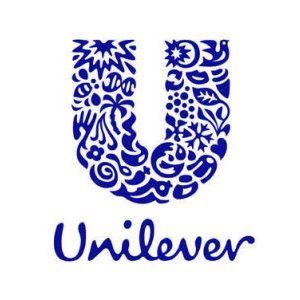
Unilever places sweet ads off limits for children
The company will no longer target them with adverts for food and drinks
Local health lobbying groups have welcomed a decision by multinational consumer goods conglomerate Unilever to stop marketing food and beverages to children under the age of 16. But one media agency says it is unlikely that there will be any major effect on current adspend.
In future Unilever will not engage with young teens through any marketing or on social media, and will also not collect or store data about this demographic.
In 2003, the company said it would stop marketing and advertising foods and refreshments to children under the age of 12.
Popular Unilever food products in SA include Lipton Ice Tea and ice cream brands Wall’s and Magnum.
Part of Unilever’s new strategy includes not using influencers, celebrities or social media stars who are under the age of 16. It will also not promote brands or products in schools.
The decision will inevitably place pressure on other big local food and beverage conglomerates to re-evaluate their communication and marketing strategies to young South Africans. Unilever’s decision is effective from January next year.
One in eight children now suffers from obesity, according to nutritionist Prof Rina Swart.
Prof Pamela Naidoo, CEO of the Heart & Stroke Foundation SA, tells the FM: “This proactive measure is a responsible one, which is in keeping with the global movement for social consciousness in every aspect of our lives. Unilever is now leading the food and beverage industry, before legislation banning advertising harmful products is implemented.”
Chris Botha, group MD at Park Advertising, which has the media agency The MediaShop in its stable, says: “This is the next step in a journey that Unilever and other [fast-moving consumer goods] manufacturers have been on for a while.
“In years gone by advertising to children was limited to certain platforms, at certain times, for certain products. I do not believe this will have an effect on ad budgets. The amount of money being spent on targeting children is small. That money will no doubt be moved to targeting parents more aggressively.”
Margot McCumisky, national manager of Diabetes SA, says while her organisation welcomes the move, the problem of targeting children still exists. “Confectionery goods are displayed in supermarkets and shops in the aisles where you queue to pay, so if your children are with you when you shop this is advertising these products. It makes it difficult for parents even if they are not inclined to buy them for their children.”
Kgaugelo Maphai, chair of communications company the Matrix Group, says: “This is a progressive step by Unilever. What South Africans never speak about is how bad sugar is for our society. It’s imperative for food and beverage companies that produce products targeting children to be responsible. We cannot encourage ‘unhealthy’ eating to young people, because we’ll create another generation of citizens who are battling with various chronic diseases.”
When it comes to the marketing of food and beverages to South Africans, the landscape is one of self-regulation. This is not helped by government inertia regarding legislation restricting the practice.
And despite self-policing and a pledge by the then Advertising Standards Authority of SA 14 years ago to limit unhealthy food marketing to children aged 12 and younger on channels during certain broadcasting times, it seems children remain fair game for marketers.
A creative director at one large agency tells the FM: “Frankly, we can say what we want to, with little worry about censure. There are always ways to market and sell to the vulnerable.”
News Category
- International retailers
- On the move
- Awards and achievements
- Legislation
- Wine and liquor
- Africa
- Going green
- Supplier news
- Research tools
- Retailer trading results
- Supply chain
- Innovation and technology
- Economic factors
- Crime and security
- Store Openings
- Marketing and Promotions
- Social Responsibility
- Brand Press Office
Related Articles

Warning of Eskom collapse

Knorr recalls brown onion gravy sachets

Eskom CEO shares good news about load-shedding

Tax warning for South African businesses


